They told us "yes we will take you to the camp" but nothing happened. All we got was beating.
| 04.08.2022 | Belevren to Tatlıpınar | josoor | 42.0922652, 27.1768816 | Bulgaria | Turkey | yes | no | yes | no | no | no | 20 - 39 | 8 | Syria, Morocco, Tunisia | detention, no translator present, denial of access to toilets, denial of food/water | Over 28 | beating (with batons/hands/other), kicking, theft of personal belongings, reckless driving | 2 men wearing black uniforms with “police” written in English across their backs and on the front of their jackets, and blue arm bands with the EU flag; over 20 uniformed people in deep blue uniforms and a logo on their shoulders, resembling the Bulgarian Police; 2 men wearing green camouflage uniforms with a flag on their shoulder; 4 men wearing sacramento green uniforms with “border police” written on them; 1 blue Mitsubishi jeep with “Border Police” written on it in English; White Skoda cars with blue stripes and writing on it; blue Volkswagen vans with white writing; 1 old truck resembling a Zil Mercedes military truck; 2 black discovery Land Rover cars with “Border Police” written on it, identified as a Bulgarian Border Police vehicles |
On April 8th, 2022 around seven p.m. the respondent, a 39-year-old male from Tunisia, and seven other people on the move were pushed back from Bulgaria to Turkey. The group he was pushed back with consisted of men from Syria, Tunisia and Morocco, aged between 20 and 39 years old. He was initially travelling with two other men from Syria and Morocco, aged between 35 and 39 years old, but he got separated from one of them after the detention site.
According to the respondent, he crossed the Bulgarian-Turkish border close to Dereköy at around 16:00 on the the 2nd of April. After crossing over, they reportedly continued walking for six days, heading in the direction of Sofia with the help of a digital map on a phone. They intermittently took only one-hour long breaks between walking. The respondent could not specify how many kilometers they had walked but stated that they were only five kilometers from Sofia when they were apprehended.
On April 8th, at around 7 a.m., the three men walked on a paved road leading to Sofia because their phones had run out of battery and they could not continue walking in the forest without getting lost, the respondent explained. As they walked on the road, a blue car with a logo and “border police” written in English on it approached and stopped next to the transit group. The vehicle was identified as resembling the vehicle displayed Image 1.
Two men got out of the car. When asked to describe what the men were wearing, he said they had on black uniforms with “police” written in English on their backs and on the front of their jackets, black pants and black boots. One of the men reportedly wore a blue armband with what resembled the EU flag on it. The respondent recognised the uniforms as resembling Bulgarian Frontex uniforms from image 2. They carried weapons in their holsters.
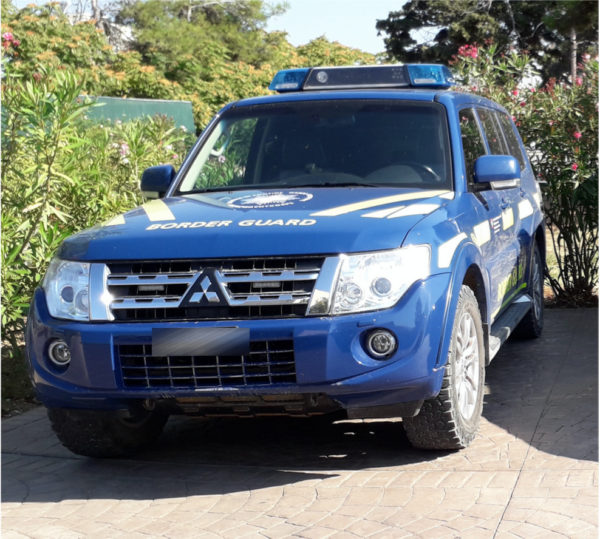 Image 1: Frontex Jeep. Source: Lena K
Image 1: Frontex Jeep. Source: Lena K
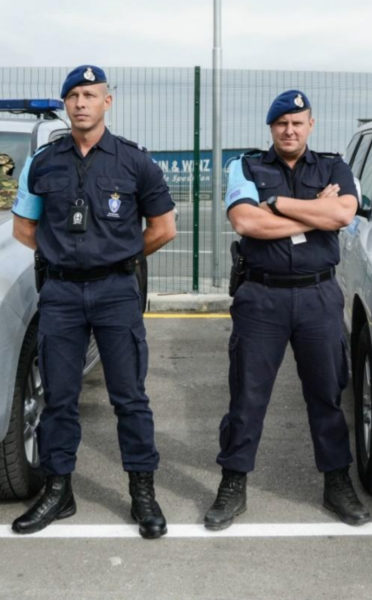 Image 2: Bulgarian Frontex Officers with blue armbands - The respondent clarified the men wore this uniform but no hats.
According to the respondent, the uniformed men stopped the group and asked them in Bulgarian for their documents. The respondent explained: “They knew that we didn’t have any [documents] because our appearance showed that we had been walking for a long distance and the clothes were dirty”.
All three men were reportedly then searched but no personal belongings were taken from them. The transit group were subsequently asked questions by the officers about their nationalities and how they got to the point of apprehension.
The uniformed men then reportedly started making phone calls while the transit group waited next to the blue car for about 10 minutes. Subsequently, they were loaded into the back seat of the vehicle and taken to what the respondent refers to as “police station”. The drive took approximately 10 minutes as they drove through the city of Sofia. The respondent recalled the group telling the men in uniform that they wanted to go “to the camp”, but the request was first ignored and then answered by one of the officers with,‘Don’t worry. We will take you to the camp!".
They arrived at the site of detention, described by the respondent as a six or seven-storey building with a glass door at the entrance leading to a long hallway with offices on both sides and a big cell at the end. On the front door was a flag resembling the Bulgarian flag and a big sign in Bulgarian, leading the respondent to believe the detention site was an official building.
Many “civilian cars” and vehicles referred to by the respondent as “police cars” were parked outside in front of the detention site. The "police cars" were described as white Skoda cars with blue stripes, identified by the respondent in Image 3, and blue Volkswagen vans with writing on them, identified by the respondent as the vehicle illustrated in by image 4 as a Bulgarian Police van. In the vicinity of the detention site, the respondent recalled seeing many other high buildings.
Image 2: Bulgarian Frontex Officers with blue armbands - The respondent clarified the men wore this uniform but no hats.
According to the respondent, the uniformed men stopped the group and asked them in Bulgarian for their documents. The respondent explained: “They knew that we didn’t have any [documents] because our appearance showed that we had been walking for a long distance and the clothes were dirty”.
All three men were reportedly then searched but no personal belongings were taken from them. The transit group were subsequently asked questions by the officers about their nationalities and how they got to the point of apprehension.
The uniformed men then reportedly started making phone calls while the transit group waited next to the blue car for about 10 minutes. Subsequently, they were loaded into the back seat of the vehicle and taken to what the respondent refers to as “police station”. The drive took approximately 10 minutes as they drove through the city of Sofia. The respondent recalled the group telling the men in uniform that they wanted to go “to the camp”, but the request was first ignored and then answered by one of the officers with,‘Don’t worry. We will take you to the camp!".
They arrived at the site of detention, described by the respondent as a six or seven-storey building with a glass door at the entrance leading to a long hallway with offices on both sides and a big cell at the end. On the front door was a flag resembling the Bulgarian flag and a big sign in Bulgarian, leading the respondent to believe the detention site was an official building.
Many “civilian cars” and vehicles referred to by the respondent as “police cars” were parked outside in front of the detention site. The "police cars" were described as white Skoda cars with blue stripes, identified by the respondent in Image 3, and blue Volkswagen vans with writing on them, identified by the respondent as the vehicle illustrated in by image 4 as a Bulgarian Police van. In the vicinity of the detention site, the respondent recalled seeing many other high buildings.
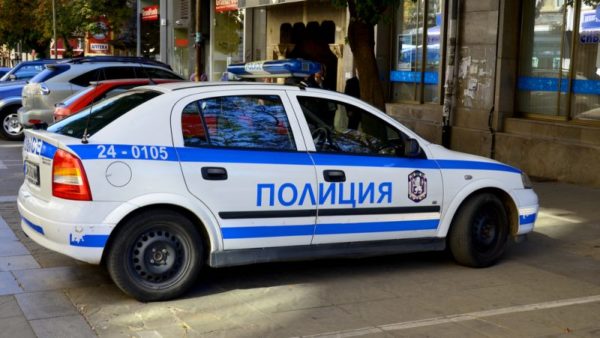 Image 3: Common Bulgarian Police car
Image 3: Common Bulgarian Police car
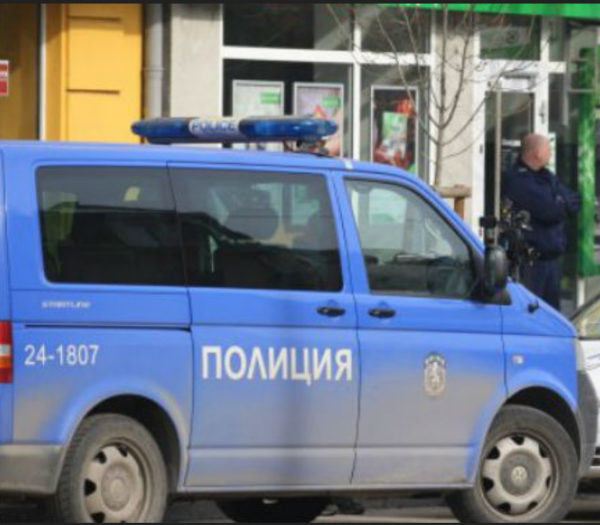 Image 4: Bulgarian Blue Common Police van
Inside the detention site there were over 20 people in uniform, described by the respondent as wearing deep blue jackets and pants with a logo on the shoulders (the same logo the respondent recognised on the vehicles) and “police” written in small capital letters on the top of their left chest and on their backs, identified by the respondent as resembling the uniforms displayed in image 5.
Image 4: Bulgarian Blue Common Police van
Inside the detention site there were over 20 people in uniform, described by the respondent as wearing deep blue jackets and pants with a logo on the shoulders (the same logo the respondent recognised on the vehicles) and “police” written in small capital letters on the top of their left chest and on their backs, identified by the respondent as resembling the uniforms displayed in image 5.
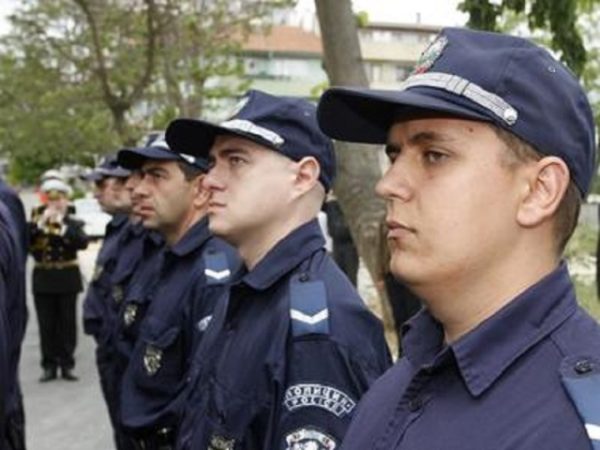 Image 5: Blue Bulgarian Police Uniform, close up
Once inside the detention site, two men wearing the aforementioned blue uniforms reportedly asked the transit group to hand over their phones and to leave their backpacks on the floor (they never had these returned to them). They then proceeded to searched them.
The officers then asked the group about their nationalities and how they came to Bulgaria, the respondent recounts: “I started telling them what happened and suddenly one of them slapped me in my face and punched my friend in his face also. They started kicking and slapping us for almost 10 minutes.”
Following this, at about 8 a.m. the transit group were looked into a 4 x 4 meter-sized cell with “iron bars” instead of a door and one bunk bed inside. There were approximately 40 other people already inside the cell, including people from Syria, Morocco, Algeria and Iraq, all aged between 20 to 50 years old. Among them were at least three women.
The respondent recalled never being offered any food or water during, nor having access to a toilet.
Reportedly no documents were checked, no translator was present, and no fingerprints or photos were taken of the transit group. The respondent recalled staying in the cell for about four hours, until around 12 p.m, when four officers wearing the same deep blue uniforms took all the people from the cell and loaded them into the trunk of truck. The vehicle was described by the respondent as a green old Zil Mercedes soviet truck, which he then identified in image 6. The trunk reportedly measured 3 x 4 meters. As there were no seats inside, the group of over 40 people had to stand for the duration of the drive because it was too crowded to sit on the floor, explained the respondent. He further stated that the group could not see outside, nor could they breathe properly.
[caption id="attachment_20044" align="alignnone" width="590"]
Image 5: Blue Bulgarian Police Uniform, close up
Once inside the detention site, two men wearing the aforementioned blue uniforms reportedly asked the transit group to hand over their phones and to leave their backpacks on the floor (they never had these returned to them). They then proceeded to searched them.
The officers then asked the group about their nationalities and how they came to Bulgaria, the respondent recounts: “I started telling them what happened and suddenly one of them slapped me in my face and punched my friend in his face also. They started kicking and slapping us for almost 10 minutes.”
Following this, at about 8 a.m. the transit group were looked into a 4 x 4 meter-sized cell with “iron bars” instead of a door and one bunk bed inside. There were approximately 40 other people already inside the cell, including people from Syria, Morocco, Algeria and Iraq, all aged between 20 to 50 years old. Among them were at least three women.
The respondent recalled never being offered any food or water during, nor having access to a toilet.
Reportedly no documents were checked, no translator was present, and no fingerprints or photos were taken of the transit group. The respondent recalled staying in the cell for about four hours, until around 12 p.m, when four officers wearing the same deep blue uniforms took all the people from the cell and loaded them into the trunk of truck. The vehicle was described by the respondent as a green old Zil Mercedes soviet truck, which he then identified in image 6. The trunk reportedly measured 3 x 4 meters. As there were no seats inside, the group of over 40 people had to stand for the duration of the drive because it was too crowded to sit on the floor, explained the respondent. He further stated that the group could not see outside, nor could they breathe properly.
[caption id="attachment_20044" align="alignnone" width="590"]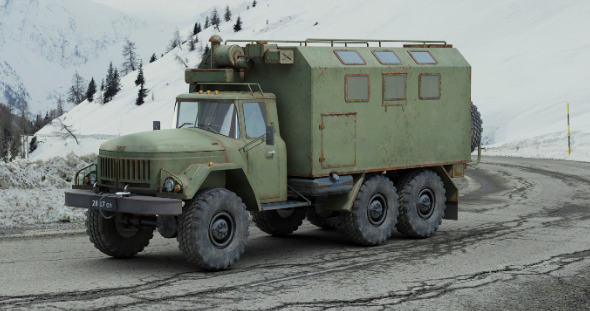 Image 6: ZIL-131 military truck[/caption]
They drove at a fast speed for around six hours, recounted the respondent, and the truck stopped four times along the road for groups of people to be taken from the trunk, “All we could hear were people’s screaming of pain and beating outside”.
The respondent and one of the men from his initial transit group were among the last groups to be taken from of the trunk, he recalled. After six hours, at around 6 p.m., they arrived at the border, close to an unpaved road. At this location, two men reportedly wearing green camouflage uniforms with Bulgarian flags on the arm, and four men in sacramento green uniforms with jackets with “border police” written on the their back and a logo on the shoulder, holding tree branches, were present.
The respondent also reported two black discovery Land Rovers with “border police” written on them at the scene, which the respondent identified as Bulgarian Border Police vehicles by image 7.
[caption id="attachment_19982" align="alignnone" width="488"]
Image 6: ZIL-131 military truck[/caption]
They drove at a fast speed for around six hours, recounted the respondent, and the truck stopped four times along the road for groups of people to be taken from the trunk, “All we could hear were people’s screaming of pain and beating outside”.
The respondent and one of the men from his initial transit group were among the last groups to be taken from of the trunk, he recalled. After six hours, at around 6 p.m., they arrived at the border, close to an unpaved road. At this location, two men reportedly wearing green camouflage uniforms with Bulgarian flags on the arm, and four men in sacramento green uniforms with jackets with “border police” written on the their back and a logo on the shoulder, holding tree branches, were present.
The respondent also reported two black discovery Land Rovers with “border police” written on them at the scene, which the respondent identified as Bulgarian Border Police vehicles by image 7.
[caption id="attachment_19982" align="alignnone" width="488"]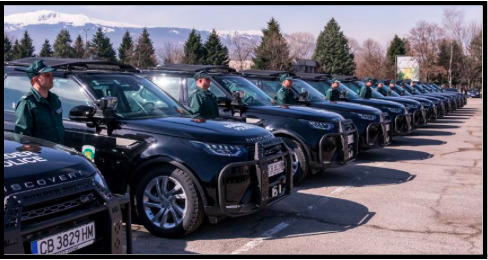 Image 7: Bulgarian Border Police - Discovery Landrovers [/caption]
The eight men remaining in the vehicle, including the respondent, from Syria, Tunisia and Morocco, between the age of 20 and 39 years, were taken from the trunk and immediately subjected to beatings by the uniformed men which lasted about 20 minutes, recalled the respondent; they were beating the group with tree branches and kicking them. The respondent stated that they were beaten on all parts of their bodies but especially on his arms which caused serious bruises (see image 10).
After that, the group was reportedly searched again and their shoes, jackets and money were taken from them and never returned. The search took around 30 minutes.
Image 7: Bulgarian Border Police - Discovery Landrovers [/caption]
The eight men remaining in the vehicle, including the respondent, from Syria, Tunisia and Morocco, between the age of 20 and 39 years, were taken from the trunk and immediately subjected to beatings by the uniformed men which lasted about 20 minutes, recalled the respondent; they were beating the group with tree branches and kicking them. The respondent stated that they were beaten on all parts of their bodies but especially on his arms which caused serious bruises (see image 10).
After that, the group was reportedly searched again and their shoes, jackets and money were taken from them and never returned. The search took around 30 minutes.
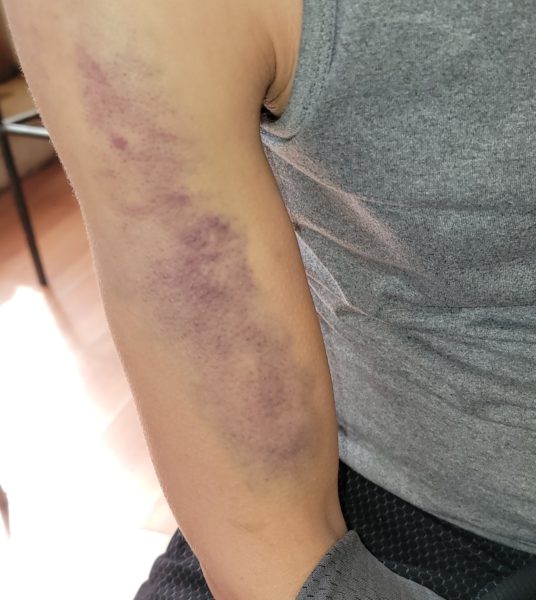 Image 10: The respondent's arm with bruises obtained from beating by uniformed men during pushback. Source: Josoor
Subsequently, the uniformed men opened a door in the border fence which the respondent described as “unofficial”, and pushed all eight people through it back to Turkish territory. The push back happened at at around 7 p.m.
Once on Turkish territory, the group started to walk away from the border. The respondent recalled following the men as they walked through mountains first, then following an unpaved road until they arrived at a river that they drank from. They continued walking for another 12 hours until they arrived at Edirne.
Image 10: The respondent's arm with bruises obtained from beating by uniformed men during pushback. Source: Josoor
Subsequently, the uniformed men opened a door in the border fence which the respondent described as “unofficial”, and pushed all eight people through it back to Turkish territory. The push back happened at at around 7 p.m.
Once on Turkish territory, the group started to walk away from the border. The respondent recalled following the men as they walked through mountains first, then following an unpaved road until they arrived at a river that they drank from. They continued walking for another 12 hours until they arrived at Edirne.
